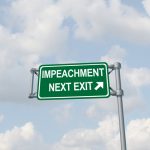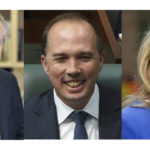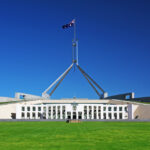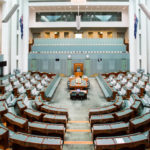Don Dunstan: A Past Beacon of Light in a Barren Political Landscape
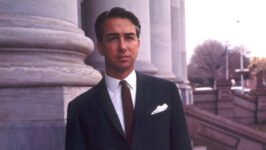
At around 11 pm on 10 May 1972, South Australia University law lecturer Dr George Duncan was thrown into Adelaide’s River Torrens by what it’s fairly safe to say these days were three SA police vice squad officers.
This occurred because Duncan was a gay man present at a well-known beat at a time when being homosexual was criminalised.
Unlike Roger James, who was also tossed into the river at about the same time, Duncan couldn’t swim.
After being thrown in, James was making his way over the riverbank to pull himself out, when he noticed the head of another man, Duncan, slip beneath the water.
James and other witnesses were too afraid to identify the perpetrators. And as the public outcry was so great, Scotland Yard was called in. Its report identified three police officers who likely killed Duncan but concluded there wasn’t enough witness evidence. That report was buried until 2002.
Such were the institutional attitudes of the day that the British detectives stated that there was no intention to kill, and the incident was “merely a high-spirited frolic which went wrong”. And as the press arrived late on the scene, Duncan’s body was placed back in the river for a good photo.
A social reformer
At the time this gay hate crime was perpetrated by law enforcement, the SA premier was Don Dunstan, who’d long sought law reform around homosexuality.
In the mid-60s, as attorney general he’d moved to have such legislation drafted but pulled back due to a perceived lack of public support.
Even though, as Labor premier, Dunstan had established a 1971 law review, which included decriminalising homosexuality, in the aftermath of Duncan’s death, it was Liberal MPs who oversaw the 1972 passing of a watered-down consenting adult defence against the crime of homosexuality.
After his 1975 re-election, Dunstan assured the gay community of his support for a bill brought by Labor backbencher Peter Duncan. And the passing of the Criminal Law (Sexual Offences) Amendment Act 1975 saw SA become the nation’s first jurisdiction to decriminalise homosexuality.
As he’s been considering the coming 50th anniversary of Dr Duncan’s death, Civil Liberties Australia (CLA) CEO Bill Rowlings has asserted that under the 1970 to 1979 Dunstan premiership, SA was a hotbed of social progression, which, sadly, isn’t being mirrored in today’s political climate.
An eye for reform
On being asked what it was about South Australia in the 1970s that saw it known as a state that was forging forward-thinking policies, Rowlings remarked, “one man – in this case – with a vision of what Australia could become, rather than what Australia needed to avoid.”
“If all you perceive ahead is obstacles, then you duck and weave,” the civil liberties advocate continued. “If your mind’s eye sees an open field, then you can explore and expand in many directions – sometimes at once – as Don Dunstan did.”
According to Rowlings, Dunstan changed South Australia politically by lowering the voting age, and upholding forgotten rights, in terms of passing anti-discrimination laws, reducing censorship and abolishing the death penalty.
The 35th SA premier further oversaw the recognition of Aboriginal land rights, the appointment of the first female judge and the reform and expansion of state education and health systems. Dunstan also eased drinking laws, created an environment ministry and enacted universal suffrage.
“By changing SA, he showed how Australia, as a whole, could change. We were a much better country when Dunstan left politics than when he entered” Rowlings told Sydney Criminal Lawyers.
“There’s not many politicians over the past century about whom you could say that.”
A dearth in vision
Rowlings went on to make the case that “politicians need principles and vision”, while what we’ve been witnessing over recent decades is a bunch of “economic pragmatists and political marketers” that are primarily focused on getting re-elected.
“Both major parties are moribund at the federal and state level,” he lamented, adding that while there are “MPs of promise”, they’re usually members of minor parties, as both Labor and the Liberals have such a tight hold on what occurs within their ranks.
An example of a minor party MP that’s having a big influence on her state, in terms of progressive social change, is Victorian Reason MLC Fiona Patten, whose private members bills have led to the establishment of assisted dying laws and the Richmond medically supervised injecting centre.
Another politician to watch is recently installed Australian Greens Senator Lidia Thorpe. The Gunnai Gunditjmara woman has long been a progressive force in forging reform in relation to the rights of First Nations peoples.
And while both these MPs aren’t from the major parties, their presence in parliament, and that of other progressive minor party members, may just highlight the need for constituents to begin throwing more support behind these visionaries, as traditional party MPs are dead in the water.
State capture
At a recent climate rally at NSW parliament, former Australian Greens Senator Scott Ludlam suggested that what’s occurring at present is state capture: a situation where private sector interests are heavily influencing and even controlling government policy.
Ludlam posited that state capture is the reason why elections are no longer having an impact in terms of bringing about changes that are needed.
Indeed, Greenpeace’s 2019 Dirty Power documentary points out how the Morrison government is stacked with fossil fuel lobby representation.
As the Civil Liberties Australia chief executive outlines, a first step in getting this nation back on track to being an upholder – rather than a denier – of human rights would be in enacting a federal bill of rights, as at present there’s next to no protections for the basic freedoms of Australian citizens.
“Achieving a more positive national future isn’t rocket science,” Rowlings concluded, “all you have to do is imagine how Don Dunstan would have handled the temporary challenges and the ongoing opportunities in front of us.”




